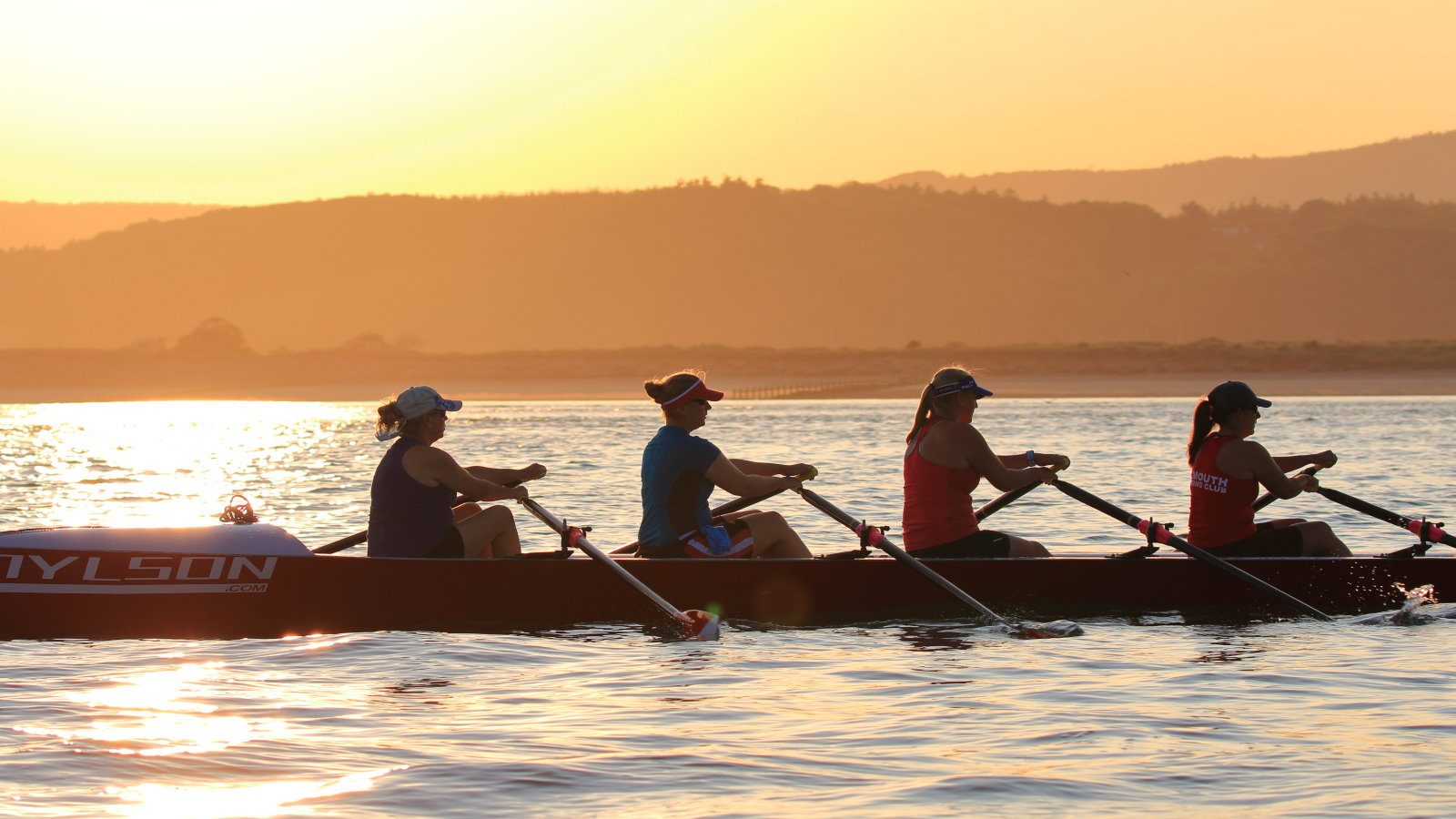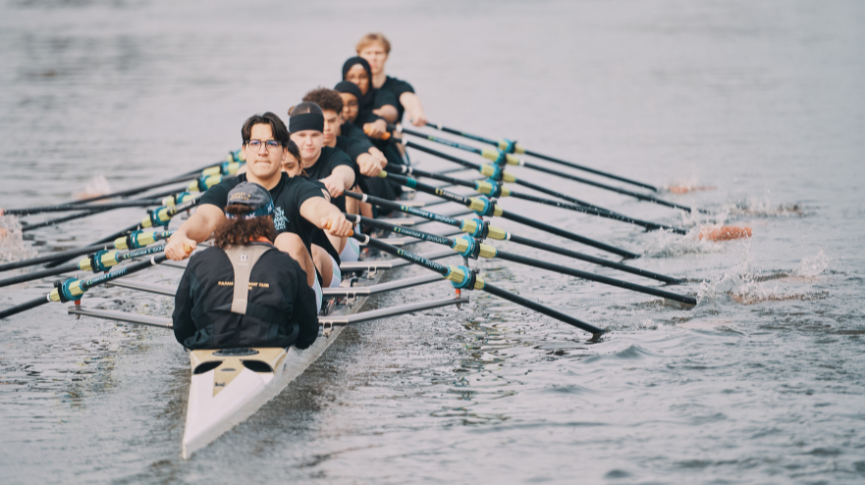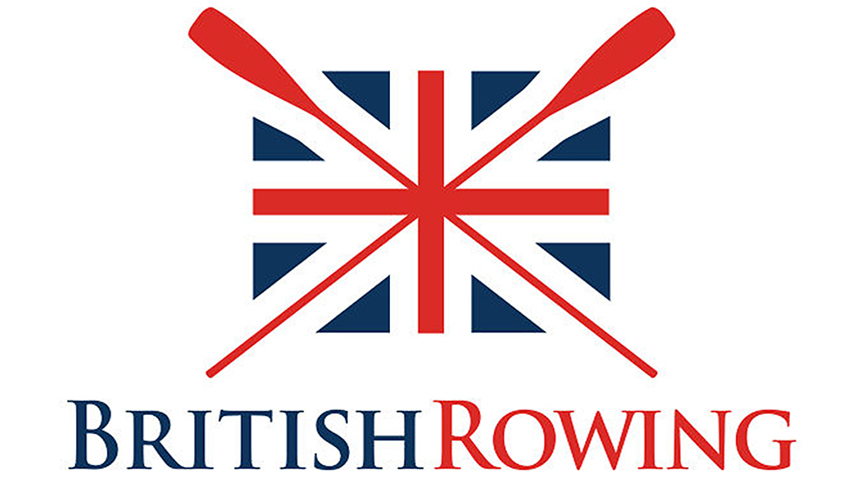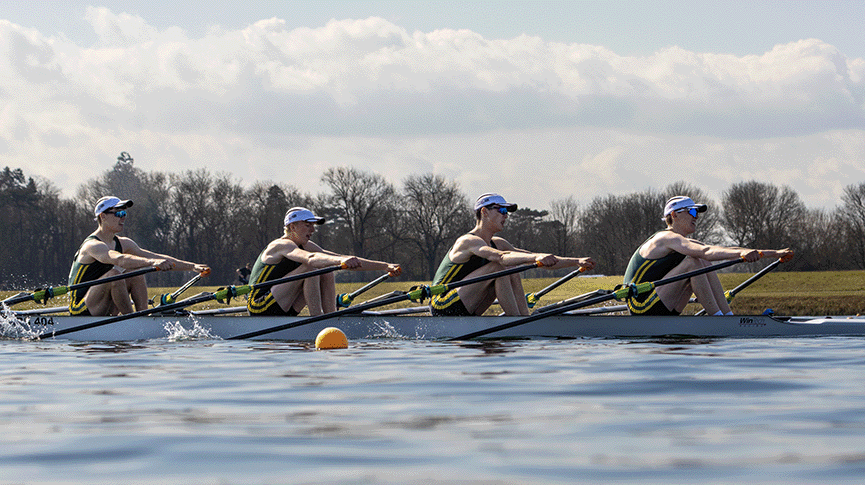Tips for greener living to protect our planet
With the 2021 United Nations Climate Change Conference COP26 opening in Glasgow on Sunday 31 October, environment agency Hubbub share their top 12 tips for rowers

Exmouth rowers enjoying picturesque conditions (c) Tom Hurley
Think you know how to help protect our planet? Well, read on to find some great suggestions that you might not have thought about from environment agency Hubbub and members of our rowing community.
1 – Fashion fix: recycle your rowing kit
The way we create, sell, care for and dispose of our clothing has a huge environmental effect. The impact comes from every stage of our clothes’ lives: the thousands of litres of water needed to grow crops like cotton, the fabric dying processes that can pollute waterways, the carbon emissions created from transporting them and the microplastics released when we wash them – to name a few.
The modern high-street fashion industry produces clothing at an incredibly fast pace –a whopping 11 million items are binned each week in the UK! While our all-in-ones and sportwear might not count as high-street fast fashion, there are still ways we can extend the life of our rowing kit to reduce its impact.
- Repair any holes or tears with some basic sewing skills!
- Hand-me-downs or swaps: pass on extra kit to novices or growing juniors.
- Kit sale: raise money for your club by selling second-hand kit – these clothes can be donated by members, from a club clear-out, and from the lost and found.
- Donate: lack of access to the right kit holds back a lot of young people from accessing sport. The Lords’ Taverners charity collects usable general sportswear to help young people in the UK and abroad get active, and the charity Play It Again Sport collects for the same causes in Wales.
- Skip the bin: clothes that go to landfill take hundreds of years to break down and emit methane – use TRAID clothes banks or find an animal shelter that accepts items instead, they can repurpose unusable clothes into things like insulation or toys for pets.
2 – Green travel trooper
Did you know 50% of car journeys in the UK travel less than two miles? Switching out short trips in the car for walking, cycling or public transport can be a boon for the environment.
In the UK, 55% of transport emissions come from passenger cars, harming the quality of the air we’re breathing. If you’re travelling to or from your rowing club, or to a regatta, try to:
- Use public transport
- Cycle or walk
- Give lifts and car-pool
- Rent or share racks on boat trailers for races away from home
- Service your trailers regularly, as flat tyres cost more fuel
3 – Power preserver
A massive 22% of the UK’s carbon emissions come from energy used to heat and power our homes. And while the amount of renewable energy in the energy grid is increasing all the time, there’s still a big reliance on fossil fuels to provide this power.
Unfortunately, many of us live and work in energy-inefficient buildings in the UK. Gas and electricity prices are also going up this year, so trying to save energy and keep our bills down and might be a high priority.
Here are tips for your rowing club:
- Get a smart meter to track what’s using your energy
- Get a shower timer (heating water is a huge chunk of heating bills)
- Use LED light bulbs
- Get your bulbs on sensors so they only switch on when people are around and turn off automatically
- Get timer plugs or smart plugs to switch off items when not in use.
4 – Plant protein pro
More and more of us are reducing our meat and dairy intake for our own health and the health of the planet. This is great news since switching to a plant-based diet can cut your carbon footprint from food by up to half!
As athletes, us rowers want to be sure we are getting plenty of protein. And with so many plant protein sources available nowadays, this is easy! Lots of these are super tasty with a high protein content; you can mix it up with bonanza of beans, lentils, nuts and seeds.
Loughborough rowers Nadine Storey and Emily Quinton share their five tips for your club:
- Offer oat or soya milk for the post-row coffee or tea
- Make a simple swap in a rowers’ favourite, such as Spag Bol, replacing the meat with lentils or plant-based mince made from soya, pea or wheat protein
- For a plant-based chilli, just double up on the beans – try adding black beans alongside kidney beans
- Read The Plant-Based Cyclist by Nigel Mitchell for sports science, nutritional tips and recipes which apply just as much to rowing as cycling.
5 – Food waste flipper
When it comes food, you can’t accuse rowers of being wasteful: we’re a hungry bunch after all, but it might surprise you that we manage to throw away a whole fifth of our food without eating it. This may not seem a big issue, but the resources that go into producing our food along with the methane it can release when it’s breaking down mean that if food waste was a country, it would be the third biggest emitter of carbon emissions worldwide!
Try out these tips from Mia Hartwell at St Neots Rowing Club to keep your food fresh and out of the bin:
- Measuring foods like pasta and rice can help mean you don’t overcook and end up throwing the leftovers in the bin
- Embrace your freezer: batch cook and freeze for later
- Got some elderly veg? Roast it up for a delicious dinner with less waste.
- Check out food-sharing apps like Olio to send your food to a new home
- Double check your cupboards before your next shop.
And what about your club? If you sell food, how about a plan for the leftovers? Discounting at the end of the day, sharing with community groups or apps like Olio makes it easy to make sure everything is enjoyed.
6 – Greener cleaner
With COVID-19 came the need to keep our hands and our rowing equipment cleaner than ever before. As rowers, the health of our waterways is super important to us all, so we want to avoid harmful chemicals, excess plastic or using too much water.
Why not conduct a review of the cleaning products you are using at your club and look for eco-friendly alternatives. It can be as easy as searching ‘eco cleaning products’ on google and placing a bulk order.
Loughborough BC members Nadine and Emily share five tips to keep you and your club cleaner and greener:
- Washing up liquid and liquid hand soap can be bought in bulk to refill dispensers
- Cleaning products for your boats, blades, gym equipment plus toilet and kitchen cleaners – some liquid cleaners can be bought concentrated for you to add water yourself, thereby decreasing the carbon footprint of shipping
- Reuse clothes that are too tatty to wear into cleaning rags
- Washing machines can be fitted with filters to prevent microplastics getting into the water supply
- Fit showers and taps with timed flow valves so they can’t be left running accidentally.
Once you get started on this, you’ll find other areas to green – loo roll, boat washing sponges and buckets – we’d love to hear your ideas!
7 – Air mile minimiser
Within Europe, planes emit around ten times more CO2 into the atmosphere than trains do over the same distance. So, if you’re a regular flyer, switching out domestic or short haul flights for trains, boats and coaches can make a huge difference to your carbon footprint.
Going abroad for a training camp or racing? You might be able to get there without flying!
- Get a railcard to save money
- Travel together! Did you know you can get a third off train travel when 3-9 people in a group, usually at off-peak times.
- Plan ahead – the best deals are normally bought in advance!
- Ask your employer to sign up for ClimatePerks and you could get extra paid leave to travel to your destination via rail, coach or ferry.
8 – Plug-in pioneer
In the UK, emissions from electricity generation fell by 38% in the three years leading up to 2019 and are expected to fall by more than 70% by the mid-to-late 2020s.
Electric vehicles like cars, scooters and bikes can run on renewable energy and help decrease fossil fuel reliance. Electric vehicles also remove a huge contribution to air pollution, which has long term effects on our health.
But it’s not just cars – we can use electric vehicles on water too. Petrol launches are noisy, emit fumes and can leak into the water: Putney Town Rowing Club have found a solution in two electric launches for coaching!
9 – Competition champs
The bigger the event the more stuff we can end up buying for it and the more risk we end up producing lots of rubbish too. Here are some tips to run your regattas as sustainably as possible:
- Clearly mark fountains and taps for drinking water to encourage reusable bottles
- Offer discounts for bringing your own re-useable tea or coffee cup
- Litter bins with lids prevent rubbish being blown away and into the river
- Instead of a race T-shirt to add to your pile, you could plant a tree for your win instead!
- Encourage use of car-pooling or public transport to the event
- When recruiting volunteers, try recruit from the local area of the event to reduce their travel footprint too
The world of rowing will gather in Saundersfoot, Wales for the 2022 edition of the World Rowing Coastal Championships and Beach Sprint Finals next October. The championships has set out its aim to be the most sustainable international rowing event ever held – read more about this here.
10 – Money mover
Your money is the single most powerful tool at your disposal to tackle climate change. In fact, it could be undoing all the steps you are currently taking to live more sustainably right now! Greening your pension is 21x more powerful than stopping flying, going veggie and switching to a renewable energy provider combined.
Most of us club rowers will have a workplace pension. Unfortunately, it is likely invested in fossil fuels, companies with links to deforestation and child labour – or even tobacco and arms production.
Around COP26, the campaign Make My Money Matter want individuals and organisations to act on this revelation. So here are three things to make sure your money isn’t invested in things you don’t support:
- Ask your pension provider to go green!
- If you don’t yet have one, explore switching to a sustainable bank account – there are a few good ones on the market already.
- Ask your club to check its bank and pension scheme is committed to net zero emissions by 2050.
11 – Biodiversity boss
Gardening is more than just pretty flowers. Green space can support vital biodiversity – so planting a few well-chosen trees, shrubs or herbs at your club can make a big difference to pollinators like bees and butterflies, and bigger wildlife too.
Here are five tips for greening your club in an eco-friendly way and boosting biodiversity:
- Make sure your compost is peat free: switch your compost to peat free, and you could save around 25kg of carbon for each large bag of compost.
- Trees are experts are capturing carbon. Check WeArePossible’s advice for how to choose the right tree for your space and places to source free trees.
- Leave areas to grow wild if you have the room, this will support native insects and birds
- Plant nectar rich flowers for butterflies: erysimum, oregano and geraniums – these are also drought tolerant for dry spells
- Get creative with planting if you’re pressed for space – upcycled old wellies make great plant pots!
12 – Energy ace
Powering the places we live, work and play with renewable energy sources (like solar, wind, and tidal) produces less carbon emissions than burning fossil fuels. The UK Government signed the 2015 Paris agreement, pledging to reach net zero emissions by 2050. They have also announced that all the UK’s electricity will come from clean sources by 2035.
So choosing a green tariff is not only a great head start but sends a strong message to decision makers and Government that we support greener energy in our national grid. Visit Uswitch’s page to help you find an accredited green tariff with confidence.
It doesn’t have to stop there: Tyne United Rowing Club have solar panels on their club’s roof and Worcester Rowing Club have a wind turbine.
Finally, cut the carbon without the jargon
Did you know, two in three of us are concerned with the impact of climate change, yet only one in five know what action we can take to reduce our impact. Over a third of us would like clearer guidance on what would make a difference and where to start.
This blog has been created with help from environmental charity Hubbub and the #MakeOurMove campaign. Visit the MakeOurMove site to discover more of what can we do to have a positive impact. You’ll find lots of tips on where to start or what role we can play, both individually and collectively through engaging your community, your workplace and even contacting your MP.
Let’s make our move, together.







